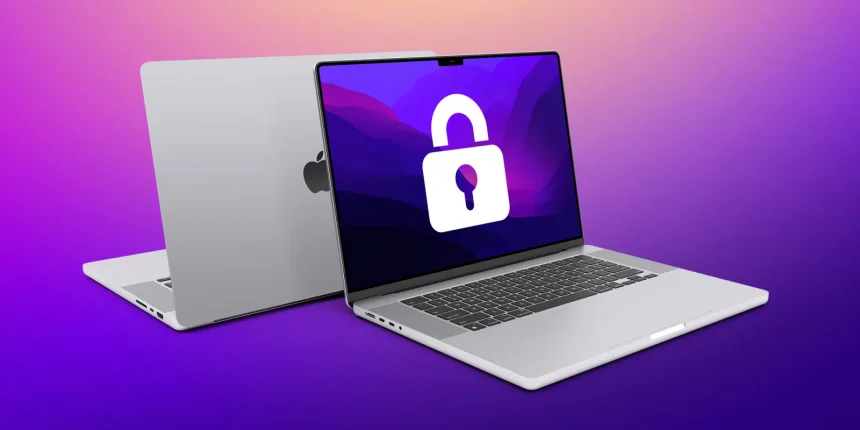Ransomware is a form of malicious software designed to block access to a computer system or files, typically by encrypting data, until a ransom is paid to the attacker. It poses a significant threat to individuals and organizations alike, leading to data loss, financial hardship, and breaches of privacy. One of the latest additions to the ransomware landscape is the Anonymous France Ransomware, which exemplifies the growing sophistication and dangers associated with this type of malware.
The Threat: Anonymous France Ransomware
Anonymous France Ransomware is a particularly menacing strain of ransomware that targets users’ files by encrypting them and demanding payment for decryption. Upon installation, the malware typically employs various tactics to infiltrate systems, including phishing emails with malicious attachments, software vulnerabilities, or through bundled software downloads. Once it successfully infiltrates a system, it initiates a series of actions aimed at maximizing its impact.
Remove annoying malware threats like this one in seconds!
Scan Your Computer for Free with Spyhunter
Download Spyhunter now, and scan your computer for this and other cybersecurity threats for free now!
Installation and Actions
Once installed, Anonymous France Ransomware scans the infected system for files to encrypt, focusing on common file types such as documents, images, and databases. It encrypts these files using strong encryption algorithms, rendering them inaccessible to the user. The encryption process can lead to file names being modified to include a specific extension, such as .locked. For example, a file named document.pdf might become document.pdf.locked after encryption.
Consequences of Infection
The consequences of an infection by Anonymous France Ransomware can be severe. Users may find themselves locked out of critical files, unable to perform daily tasks. The ransom note typically left on the infected system informs victims of the encryption and demands payment in cryptocurrency for the decryption key. This note may also include threats of data leakage or permanent loss of files if the ransom is not paid within a specified time frame.
The Anonymous France Ransomware is part of a broader family of ransomware that leverages aggressive tactics to extract ransom from victims. Its primary purpose is to extort money, exploiting the fear of data loss and the urgency to regain access to important information.
Symptoms of Infection
Identifying the presence of Anonymous France Ransomware can be critical for prompt remediation. Common symptoms include:
- Inability to open files, often accompanied by strange file extensions.
- Appearance of ransom notes on the desktop or within affected folders.
- System slowdown or crashes due to high resource usage by the ransomware.
- Unexpected network activity, as the malware may communicate with remote servers.
The Ransom Note
Text in the ransom “README1.txt” to “README10.txt” note:
Hello.
All your files have been successfully encrypted. We used strong encryption to protect your data. You will not be able to access your files until you pay the ransom.
Here is the list of encrypted files:
All your files 😉
To recover your files, please follow these instructions:
1. Download and install a Monero wallet if you haven’t done so already.
2. Send $100 XMR to the following address : 47vJ6gpLjdbN67VK7aWbrjidnUmm7cvKtjBW22ocpud3TMd3HXgxYosX7Jj7Vd9AEuD9q1AVP9FBB7V1PK5L56ncJBhFh2x
3. Send an email to anonymousfrance@onionmail.org with your payment ID.
Once the payment is received, you will receive a decryption key and instructions on how to decrypt your files.
Do not attempt to restore your files on your own, as this may permanently damage them.
We advise you not to ignore this message. After 3 days, the ransom will double, and your files will be permanently lost after 7 days.
Anonymous France | x[.]com/AnonymousFrOps
Detection Names
To determine if Anonymous France Ransomware or a similar variant is installed on your computer, look for the following detection names:
- Ransom:Win32/AnonymousFrance
- Ransom:Win32/LockFile
- Ransom:Win32/Encryptor
Similar Threats
Users should also be aware of similar ransomware threats, such as:
- CryptoLocker
- GandCrab
- REvil
- Locky
Remove annoying malware threats like this one in seconds!
Scan Your Computer for Free with Spyhunter
Download Spyhunter now, and scan your computer for this and other cybersecurity threats for free now!
Comprehensive Removal Guide
If you suspect that your system is infected with Anonymous France Ransomware, follow these detailed steps to remove the threat:
Step 1: Disconnect from the Internet
Immediately disconnect your device from the internet to prevent further data loss and to stop the ransomware from communicating with its servers.
Step 2: Boot into Safe Mode
- Restart your computer.
- As it boots, press F8 (or Shift + F8 on some systems) to enter the Advanced Boot Options.
- Select “Safe Mode with Networking” and press Enter.
Step 3: Identify and Remove the Ransomware
- Open Task Manager (Ctrl + Shift + Esc) and look for unfamiliar processes related to the ransomware.
- End any suspicious processes.
- Navigate to Control Panel > Programs > Uninstall a Program and remove any unknown applications.
Step 4: Scan with Anti-Malware Software
Download SpyHunter, a trusted anti-malware tool:
- Visit the SpyHunter website and download the software.
- Install SpyHunter and perform a full system scan.
- Follow the prompts to remove any detected threats.
Step 5: Restore Encrypted Files (If Possible)
If you have backups of your data, restore your files from there. For those without backups, consult with data recovery professionals, but keep in mind that paying the ransom is not recommended, as it does not guarantee file recovery.
Preventing Future Infections
To protect your system from future ransomware attacks, consider the following preventative measures:
- Regularly update your operating system and software to patch vulnerabilities.
- Use reliable antivirus and anti-malware solutions.
- Avoid clicking on suspicious links or downloading attachments from unknown sources.
- Maintain regular backups of important data on external drives or cloud services.
Conclusion
Ransomware, particularly strains like Anonymous France Ransomware, represents a growing threat to digital security. By understanding its workings and following the recommended removal and prevention strategies, users can better protect themselves from this damaging malware. For enhanced security, consider downloading SpyHunter to scan your computer for free and ensure your system is clean.
Remove annoying malware threats like this one in seconds!
Scan Your Computer for Free with Spyhunter
Download Spyhunter now, and scan your computer for this and other cybersecurity threats for free now!
Anonymous France Virus Overview
Threat Type: Ransomware, Crypto Virus, Files Locker
Encrypted Files Extension: .AnonymousFrance
The Anonymous France virus is a malicious ransomware strain that targets users by encrypting their files and demanding a ransom for decryption. Once infected, users will find that they cannot open their files, which will have the .AnonymousFrance extension added. This malware typically displays ransom notes through files named “README1.txt” to “README10.txt,” urging victims to pay $100 in Monero to regain access to their data.
Unfortunately, there is currently no free decryptor available for this ransomware, leaving victims with limited options. The cybercriminals behind this attack can be contacted via the email anonymousfrance@onionmail.org for negotiation or payment.
Distribution Methods
The virus spreads through various channels, including infected email attachments that utilize macros, malicious advertisements, and torrent websites.
Symptoms
Victims will notice the following symptoms:
- Inability to open files stored on their computer
- Files displaying a different extension, such as “my.docx.locked”
- A ransom demand message appearing on their desktop
Damage
The impact of the Anonymous France virus is severe, as it encrypts all targeted files, rendering them inaccessible without payment. In addition to file encryption, the infection may also lead to the installation of additional malware or password-stealing trojans, exacerbating the damage.
For those affected, it’s crucial to avoid paying the ransom and seek professional assistance for data recovery solutions where possible.





